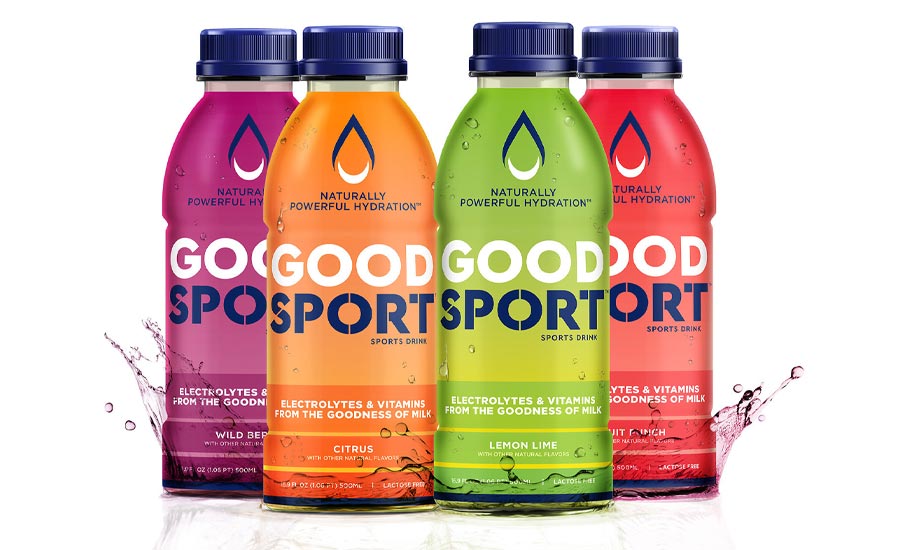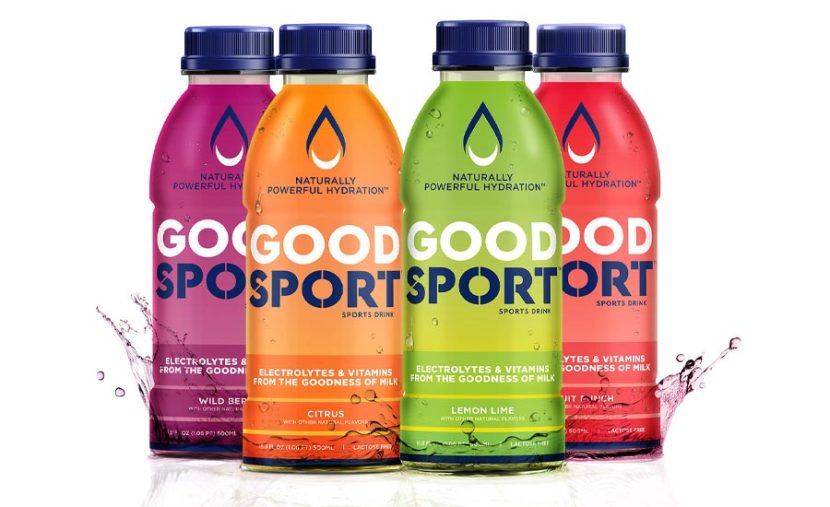In terms of enhancing your athletic capabilities on a vegan diet, there’s encouraging news: plant sources provide everything necessary for your success. As an athlete, you likely find yourself balancing the demands of achieving training goals, preserving energy levels, and ensuring effective recovery – all while sorting through a myriad of misconceptions surrounding plant-based nutrition. […]

In terms of enhancing your athletic capabilities on a vegan diet, there’s encouraging news: plant sources provide everything necessary for your success. As an athlete, you likely find yourself balancing the demands of achieving training goals, preserving energy levels, and ensuring effective recovery – all while sorting through a myriad of misconceptions surrounding plant-based nutrition. You can be confident that fulfilling all your dietary requirements as a vegan athlete is not only achievable but can also lead to exceptional outcomes.
A thoughtfully constructed plant-based diet offers not just the energy needed to power through rigorous workouts, but it also promotes speedy recovery and supports long-term wellness. A wide array of colorful fruits and vegetables, robust whole grains, nutrient-dense legumes, nuts, and seeds work in harmony to provide your body with clean energy and essential nutrients. The focus should be on a variety of foods to guarantee you’re not missing vital components that your body needs.
A prevalent concern among athletes is maintaining energy levels during physical exertion. Carbohydrates serve as the main source of energy for the body, and plant-based diets are abundant in this essential macronutrient. Whole food options such as oats, brown rice, quinoa, sweet potatoes, and bananas deliver enduring and steady energy that keeps you going strong throughout every set or distance. Combine these with healthy plant fats such as avocado, walnuts, and flaxseeds to give your meals a different layer of slow-burning energy.
We should also highlight the significance of plant-based protein sources. Be it beans, lentils, tofu, tempeh, edamame, or protein-rich grains like quinoa and amaranth – plants provide an ample protein supply. Mixing different sources of protein throughout the day ensures you receive a comprehensive array of essential amino acids. A tofu stir-fry paired with vegetables and brown rice or a smoothie made with peanut butter, almond milk, and spinach serves as exemplary meals that nourish your performance and facilitate muscle recovery.
Hydration is of vital importance too. Keeping well-hydrated is essential for both performance and recovery, and a plant-based diet offers a natural edge in this area. Foods such as watermelon, oranges, and cucumbers, along with hydrating soups and electrolyte-rich beverages, can help maintain your hydration levels, preparing you for the toughest training sessions.
If you’re uncertain about making the switch to a plant-based athletic diet, remember that gradual changes can lead to considerable improvements. Start integrating new staples into your diet and pay attention to how your body responds as you refine your energy sources. You might experience reduced inflammation and more prolonged energy from plant-focused meals, allowing you to maximize your workouts while respecting your health objectives.
Adopting this dietary approach not only helps you perform at your best but also aligns with a compassionate and sustainable lifestyle. It’s about establishing a solid foundation that benefits you not just for today, but for the long term.
As a vegan athlete, it’s crucial to ensure you meet your body’s requirements for essential nutrients that sustain your training and recovery. Let’s examine the specific vitamins, minerals, and nutrients that are key in supporting your performance, and how to seamlessly weave them into your plant-based regimen.
Iron: Vital for oxygen transportation in your body, iron is an essential nutrient for endurance and performance. Although plant-based sources of iron (non-heme iron) are generally not absorbed as effectively as their animal counterparts, pairing them with vitamin C-rich foods can greatly enhance their absorption. Consider a salad with spinach and strawberries, lentil soup with a dash of lemon, or a side of roasted broccoli with quinoa. Other notable sources include chickpeas, tofu, blackstrap molasses, and fortified cereals. Taking incremental steps to incorporate these foods ensures optimum iron levels.
Calcium: Healthy bones and muscle functioning are essential for athletes. While dairy is often linked with calcium, many plant-based alternatives are abundant. Fortified plant milks, tofu made with calcium sulfate, leafy greens like kale and bok choy, almonds, and tahini are superb choices. Adding these foods to your diet aids in maintaining bone strength, preventing injuries, and promoting overall resilience.
Vitamin B12: This indispensable vitamin is crucial for energy synthesis and brain function, yet it’s absent in plant-based foods. The good news is that fortified foods like plant milks, nutritional yeast, and certain breakfast cereals are easily accessible. A B12 supplement can also be a straightforward and dependable way to cover your daily intake. There’s no stigma in supplementation – even those who eat animal products often require additional B12!
Omega-3 Fatty Acids: These beneficial fats are essential for minimizing inflammation, maintaining joint health, and accelerating recovery. While fish is a standard source, those on plant-based diets can thrive on alternatives like chia seeds, flaxseeds, hemp hearts, and walnuts. Simply adding ground flaxseed to your oatmeal or blending chia seeds into your smoothie can be an easy (and tasty) means to enhance your omega-3 levels.
Zinc: Vital for immune support and muscle recovery, zinc is another nutrient that athletes should monitor. Whole grains, pumpkin seeds, legumes, and cashews are prime sources. Pairing zinc-rich foods with acidic counterparts (like a squeeze of lemon or a splash of vinegar) can boost absorption and ensure your body is well-equipped to recover after strenuous training.
Protein and Amino Acids: While protein typically gets a lot of attention, the amino acid profile in your diet is equally significant. A variety of plant-based proteins, including beans, lentils, tofu, tempeh, seitan, and nuts, ensures completeness. Don’t be concerned about achieving “perfect combinations” at each meal – your body can adeptly utilize what you consume throughout the day. And that chickpea and sweet potato bowl after a workout? A delightful proof that plants can fuel your strength.
Vitamin D: Commonly referred to as the “sunshine vitamin,” vitamin D is crucial for bone health and immune function. While certain mushrooms yield some vitamin D, fortified plant milks and supplements usually serve as the most dependable options, especially during winter months or for athletes who train indoors. A brief 10-15 minutes of sun exposure can also contribute positively when feasible.
Keep in mind that addressing these nutritional requirements isn’t about achieving perfection – it’s about consistency, creativity, and purposefulness. Rather than seeing it as a limitation, embrace your plant-based eating as a chance to discover vibrant, nourishing ingredients that leave you feeling robust, energized, and capable of reaching your aspirations. With every bite and sip, you’re equipping your body with the resources it requires to perform, recover, and thrive, all while aligning with values that prioritize sustainability and kindness.
A typical day of nourishment as a vegan athlete may start with a robust breakfast set to boost energy levels and establish a positive tone for the day ahead. Imagine this: a large bowl of creamy overnight oats made with fortified almond milk, chia seeds, and a dollop of peanut butter, topped with fresh blueberries, banana slices, and a sprinkle of hemp hearts. This meal not only offers a rich source of complex carbohydrates for enduring energy, but the chia seeds and hemp hearts contribute a dose of omega-3 fatty acids and plant-based protein. Plus, it’s incredibly tasty and simple to prep the night before – ideal for hectic mornings.
For a mid-morning snack, keep it straightforward and nutrient-rich. A small handful of raw almonds paired with a fresh apple makes an excellent duo. The almonds provide healthy fats and protein to stave off hunger, while the apple offers natural sugars for a quick energy boost along with fiber to help stabilize blood sugar. Alternatively, you could enjoy a protein-rich smoothie featuring spinach, frozen mango, vegan protein powder, unsweetened plant yogurt, and a splash of oat milk. This not only keeps you satisfied until lunch but also serves up a refreshing hydration boost.
Lunchtime is your opportunity to incorporate a variety of colorful veggies, whole grains, and plant protein. Consider a vibrant quinoa Buddha bowl brimming with roasted sweet potatoes, chickpeas, steamed broccoli, and sautéed kale, all finished with a creamy tahini and lemon dressing. Sprinkle some seeds, like sesame or sunflower, for an extra nutrient kick. This meal is packed with antioxidants, fiber, and key nutrients like iron and magnesium, providing precisely what your muscles demand after a morning workout or before an afternoon training session.
As the day comes to a close, aim for dinner that focuses on replenishing your body and enhancing recovery. A filling lentil and vegetable stir-fry over brown rice or farro is a quick, satisfying choice. Add an assortment of colorful veggies like bell peppers, zucchini, mushrooms, and snap peas for a range of vitamins and minerals. Toss in some tofu or tempeh for additional protein, with ginger and garlic for an anti-inflammatory boost. Want to elevate it? Add some cashews on top or drizzle a spicy peanut sauce over the dish for extra flavor and healthy fats.
If you enjoy a snack before bed, don’t skip it! Recovery continues even as the day concludes. A soothing cup of warm, unsweetened plant milk with a sprinkle of cinnamon alongside a slice of whole-grain toast with almond butter can satisfy your late-night cravings while supporting the recovery process. Another great option might be a small bowl of soy yogurt topped with granola and fresh berries, offering protein and probiotics to help you settle down and maintain gut health.
The beauty of a plant-based daily meal plan lies in its flexibility. Training for endurance? You might incorporate more carbs. Focusing on building strength? Add additional protein-rich foods. It’s all about listening to your body’s cues and adjusting accordingly. These meal illustrations are merely a starting point to inspire your culinary journey; the rest is entirely customizable and replete with opportunities!
Embracing a sustainable and balanced approach to dining as a vegan athlete not only benefits your athletic performance but also enhances your overall health and our planet’s well-being. It’s normal to feel daunted at first, especially when striving to meet your nutritional needs in a manner that is ethical and eco-friendly. But remember, this journey revolves around gradual steps toward improvement rather than striving for perfection. It’s about making small, conscientious changes that accumulate over time, building a regimen that fosters your goals without inciting unnecessary stress.
One of the simplest strategies for ensuring sustainability is to focus on whole, minimally processed foods while minimizing dependence on packaged options. These foods not only tend to have a lesser environmental footprint, but they also furnish a rich array of nutrients that enhance your training and recovery. Stock up on bulk staples like beans, lentils, quinoa, rice, oats, and dried fruits. Buying in bulk reduces packaging waste and is often more economical – a win-win for your finances and the environment.
Seasonality also plays a crucial role in sustainable eating. Opt for fruits and vegetables that are in season to guarantee fresher, tastier meals while lowering the environmental impact of importing out-of-season produce. Explore your local farmers’ market for inspiration and variety, or join a community-supported agriculture (CSA) program for a consistent supply of seasonal produce while supporting local farms. Choosing seasonal foods provides natural diversity in your diet, keeping your meals exciting and nutritionally balanced throughout the entire year.
Meal prepping emerges as an invaluable strategy for maintaining focus on your plant-based ambitions while minimizing food waste. Allocate some time each week to batch-cook essentials such as grains, beans, roasted veggies, and soups. Store them in reusable containers, allowing you to mix and match throughout the week. By prepping in advance, you’re less likely to be tempted by convenience foods and more inclined to opt for nourishing, home-cooked meals. Moreover, it feels rewarding to make the most of your grocery purchases, ensuring nothing goes to waste.
Keeping your kitchen stocked with versatile, enduring ingredients can revolutionize your sustainable eating journey. Think staples such as nut butters, tahini, canned tomatoes, frozen vegetables, and seeds. These pantry and freezer essentials empower you to whip up quick, balanced meals even on your busiest days. For instance, you could prepare a hearty chickpea and spinach curry using canned chickpeas, frozen spinach, and coconut milk – all ingredients that are simple to keep stocked.
Let’s not overlook hydration! Instead of purchasing single-use plastic water bottles, invest in a quality reusable one and keep it on hand throughout the day. Infuse your water with fresh fruit or herbs like mint to enhance its appeal without resorting to sugary bottled options. Making such small changes not only cuts down on waste but also strengthens your commitment to a more sustainable lifestyle.
As a vegan athlete, you’ll likely be searching for dependable protein sources to maintain your energy and aid recovery. While pre-packaged vegan protein powders and bars are handy on occasion, strive to primarily rely on whole-food sources whenever feasible. Tofu, tempeh, seitan, legumes, and whole grains like quinoa or freekeh are fantastic choices that don’t compromise on protein or sustainability. What’s even better, these foods usually have a lower carbon footprint compared to animal protein alternatives.
Another facet of sustainable eating is diversifying your food choices and reducing reliance on “trendy” items that may come with high environmental costs or ethical issues (like some commercial varieties of quinoa or avocados). Instead, broaden your palate by exploring lesser-known yet equally nutritious staples such as millet, sorghum, or mung beans. This approach not only supports a more balanced global food supply but also sparks creativity in your culinary endeavors.
If you’re just beginning with plant-based eating, emphasize progress over perfection. It’s unnecessary to make drastic changes overnight. Start by introducing more plant-centric meals into your routine and swapping a few staples for more sustainable alternatives. For example, replace single-use plastic wrap with reusable silicone bags, or create your own energy bars using oats, dates, and nuts. These minor adjustments may seem inconsequential initially but can trigger significant changes over time.
Finally, take a moment to appreciate the relationship between your health and the planet’s health. By opting for more plants and fewer processed, resource-intensive foods, you’re making a contribution toward a kinder, more ecological world. Balancing athletic aspirations with sustainability need not feel like a compromise – it’s an empowering choice that reflects both strength and empathy. With countless delicious, nutrient-rich options available, you’ll soon find yourself thriving in every facet.














